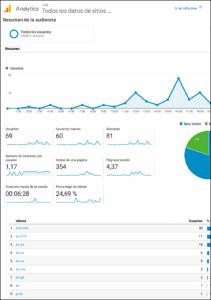Mostrar el registro sencillo del RDE
What are teachers' beliefs, values and attitudes towards the inclusion of learners who experience barriers to learning in South African primary schools?
| dc.contributor.author | Mamabolo, J. M. | |
| dc.contributor.author | Sepadi, M. D. | |
| dc.contributor.author | Mabasa Manganyi, R. B. | |
| dc.contributor.author | Kgopa, F. | |
| dc.contributor.author | Ndlovu, S. M. | |
| dc.contributor.author | Themane, M. | |
| dc.coverage.spatial | South Africa | es_MX |
| dc.date.accessioned | 2022-01-28T00:10:37Z | |
| dc.date.available | 2022-01-28T00:10:37Z | |
| dc.date.issued | 2021-06-11 | |
| dc.identifier.citation | Mamabolo, J. M., Sepadi, M. D., Mabasa-Manganyi, R. B., Kgopa, F., Ndlovu, S. M., & Themane, M. (2021). What are teachers’ beliefs, values and attitudes towards the inclusion of learners who experience barriers to learning in South African primary schools?. Perspectives in Education, 39(2), 239-252. https://doi.org/10.18820/2519593X/pie.v39.i2.17 | es_MX |
| dc.identifier.uri | https://acervodigitaleducativo.edugem.gob.mx/handle/acervodigitaledu/58170 | |
| dc.description.abstract | This study examined teachers’ attitudes towards the inclusion of learners who experience barriers to learning in their classrooms. The study implemented the quantitative descriptive design. Sixty-three Foundation Phase (grades 1–3) teachers were recruited through the convenient sampling strategy from the Capricorn District in Limpopo Province in South Africa. Data were collected through a closed-ended questionnaire adapted from the Teaching for All (Department of Basic Education, 2019) student support materials for inclusive education commissioned by the British Council. Analyses were conducted using the Statistical Package for Social Sciences (SPSS) version 22 for descriptive statistics and inferential statistics. The findings indicated that overall, teachers were well disposed to include learners who experience barriers to learning in their classrooms. However, the teachers expressed concerns regarding some teachers’ abilities that are required in inclusive settings for inclusion of these learners to happen. The study has some important implications for teachers, policymakers and researchers. The study may help to solidify teachers’ positive attitudes as the creators of knowledge rather than always assuming the role of transmitters of information from the government. Policymakers may be informed about how to involve teachers in their development of policies on inclusive education. Lastly, for researchers these findings may help further research on how to understand problems related to the implementation of inclusive education. | es_MX |
| dc.format.extent | 14 páginas | es_MX |
| dc.language.iso | en | es_MX |
| dc.publisher | Perspectives in Education | es_MX |
| dc.rights | Acceso abierto | es_MX |
| dc.rights | Atribución 3.0 Estados Unidos de América | * |
| dc.rights.uri | http://creativecommons.org/licenses/by/3.0/us/ | * |
| dc.subject | Competencias del docente | es_MX |
| dc.subject | Docente | es_MX |
| dc.subject | Papel del docente | es_MX |
| dc.subject.classification | Administración de la educación | es_MX |
| dc.title | What are teachers' beliefs, values and attitudes towards the inclusion of learners who experience barriers to learning in South African primary schools? | es_MX |
| dc.type | Artículo original | es_MX |
| dc.description.version | Versión publicada | es_MX |
| dc.identifier.collectionade | acervodigitaledu/26141 | es_MX |
| dc.type.tipologia | Artículos científicos y de divulgación | es_MX |
| dc.identifier.url | https://doi.org/10.18820/2519593X/pie.v39.i2.17 | es_MX |
| dc.identifier.doi | 10.18820/2519593X/pie.v39.i2.17 |



